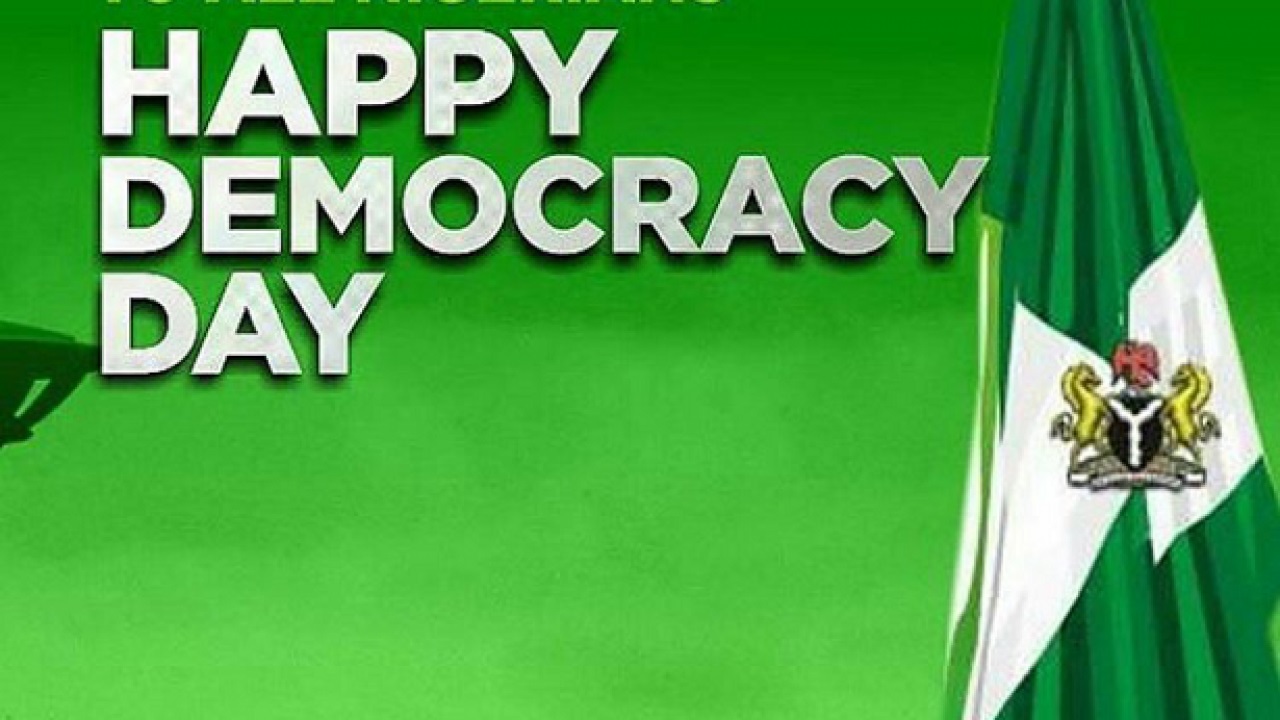In his 2021 Democracy Day address on Saturday, President Muhamadu Buhari evoked nostalgia over his vision for Nigeria’s democratic future as far back as June 6, 2018, when he formally instituted the day June 12 of every year, as the country’s new Democracy Day instead of May 29.
According to him, his desire was to celebrate the freedom and victory of “one people, one country and one Nigeria”. Not only was the day June 12 so instituted, but he had also gone further to confer even posthumously, the highest national honour of Grand Commander of the Federal Republic of Nigeria (GCFR), a title usually reserved for Heads of State of the country, on late Chief Moshood Abiola, the presumed winner of the 1993 election. To accentuate the gesture, he also honoured Alhaji Babagana Kingibe, Abiola’s running mate and late Chief Gani Fawehinmi, Nigeria’s foremost human rights lawyer, for his role in fighting for democracy and human rights.
- Troops need prayers to defeat Boko Haram, bandits – General
- Is all really well between Buhari and Tinubu?
Without much elaboration, this manifest veneration of June 12 remains one of the most definitive steps aimed at consolidating the country’s democratic dispensation by Muhamadu Buhari administration and thereby accentuated his democratic credentials, unsung as such may have been. The initiative inadvertently, elevated him to the pantheon of political game changers, as far as Nigeria’s democratic dispensation is concerned.
Taking the specific swings as well as twists in the history of June 12 as Nigeria’s Democracy Day along with the Buhari factor, provides interesting throwbacks on the country’s course in the evolution of democratic governance. As had been mentioned earlier, on June 12, 1993, Nigeria’s then military administration under General Ibrahim Babangida had conducted a general election that was expected to serve as the framework for facilitating a smooth exit by the military from the political leadership of the country, after serving their second interregnum from 1983 to 1993. The first sojourn of military incursion into governance was from 1966 to 1979. Ostensibly, the Babangida administration had contemplated that it would be the last military regime in the country and followed the mechanistic military culture of starched uniforms as well as drills to rig the country into a stage-managed electoral exercise.
The groundwork for this exercise was as surreal as it could be. First, was the establishment in 1986 of a Political Bureau with Dr Samuel Joseph Cookey as its chairman and a mandate to organise a national debate on the desirable future for the country. It was this body that recommended the establishment by fiat of two political parties in reflection of their consideration that two political divides – the Conservatives and the Progressives dominated politics in the country.
Thus we saw the emergence of the two political parties namely the National Republican Convention (NRC) for the Conservatives and the Social Democratic Party (SDP) for the Progressives.
The electoral process itself featured significant regimentation that betrayed the stark difference between the rigorous sense of dispatch in military operations and convoluted processes of fostering democratic governance.
In the elections where these parties fielded candidates for president of the country, Chief Moshood Abiola of the SDP won. However, the outcome threw up the sudden reality that the country’s power equation was about to change and as such attracted the aversion of the military establishment to the dispensation.
The annulment of the results of the elections was the eventual response of the military under Ibrahim Babangida. The annulment itself launched the country into a political tailspin, which lasted from 1993 on to 1999 when democratic rule was re-established under the General Abdulsalami Abubakar short-lived regime which came to power with the sudden death of General Sani Abacha in 1996.
The country remained in the resultant quagmire throughout the remaining days of Ibrahim Babangida, and the entire tenures of his successors such as civilian Earnest Shonekan, General Sani Abacha, General Abdulsalam Abubakar, and the civilian presidents of Olusegun Obasanjo, Umaru Yar’ Adua and Goodluck Jonathan. It was Muhamadu Buhari that came in 2015, on his second missionary journey as Nigeria’s Head of State, this time as a democratically elected president and on June 6, 2018, placed the June 12 issue in its proper context as a national heritage.
He had earlier come to power as a Major General, who led a successful military putsch in 1983 when the country was heading to a meltdown courtesy of the malfeasances of the political class then. He was apparently induced to come out of retirement in 1999 and eventually won the election after three failed attempts to be President, eventually in 2015.
Throughout human history, much of the landmark achievements by historic leaders have been executed not in the course of earth-shaking manifestations. Rather, they out of uncommon vision and moral courage easily saw through situations to identify necessary changes that will prove useful to their societies and commit themselves to the attainment of such. This scenario seems to have played out in the dalliance between Buhari and the June 12 dispensation. Although the day had enjoyed a special significance in the country since 1993 when the polls held on it were adjudged widely as the country’s freest and fairest electoral exercise ever held, it nevertheless did not enjoy the imprimatur of the government of the day as well as succeeding ones. So it was until the arrival of Buhari as the game changer, who changed its status. Hence history records him as the change agent in the transformation of the day June 12, from one in which democracy died to when democracy ascended to a new level in triumph.
Alphonsus Dickson wrote from Port Harcourt

 Join Daily Trust WhatsApp Community For Quick Access To News and Happenings Around You.
Join Daily Trust WhatsApp Community For Quick Access To News and Happenings Around You.


